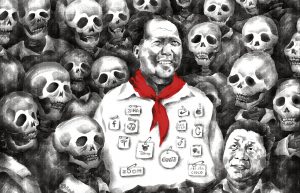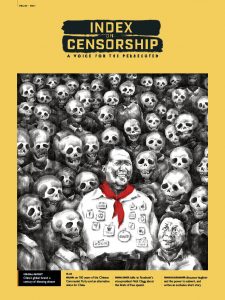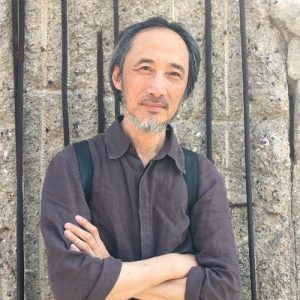Index relies entirely on the support of donors and readers to do its work.
Help us keep amplifying censored voices today.
LGBTQI rights. Gender equality. Media freedom. The fate of liberties in Hungary hang in the balance as the nation heads to the polls on Sunday. With a falling currency, a mismanaged response to the pandemic still fresh to mind and a stronger opposition under United For Hungary – a coalition of six parties spanning the political spectrum – the election campaign has been the closest in years. But the war in Ukraine, right on Hungary’s border, has changed its course in unexpected ways. Below we’ve picked the most important things to consider when it comes to the April 2022 elections.
Basic rights could worsen
Since his election in 2010, Hungarian Prime Minister Viktor Orban has whittled away fundamental rights in the country to the extent that Hungarian activist Dora Papp told Index in 2019 free expression had no more space “to worsen”.
Orban’s main targets have been people who identify as LGBTQI. Last year, amid global outcry, he passed a law that bans the dissemination of content in schools deemed to promote homosexuality and gender change. Seeking approval for this legislation, Hungary is holding a referendum on sexual orientation workshops in schools this Sunday alongside the parliamentary elections.
Orban also takes aim at the nation’s Roma and immigrants, and has revived old anti-Semitic tropes in his attacks on George Soros, a Hungarian-born Jewish philanthropist who Orban claims is plotting to flood the country with migrants (an accusation Soros firmly denies).
As for half of the population, Orban’s macho-style leadership manifests in rhetoric on women that is dismissive, insulting and focuses on traditional roles. Asked in 2015 why there were no women in his cabinet, he replied that few women could deal with the stress of politics. That’s just one example. The list goes on.
His populist politics have seeped into every democratic institution and effectively dismantled them. The constitution, the judiciary and municipal councils have all been reorganised to serve the interests of Orban. Education, both higher and lower, has seen huge levels of interference. Progressive teachers and classes have been removed. Even the Billy Elliot musical was cancelled after Orban called the show a propaganda tool for homosexuality.
But the media can’t freely report much of this
In response to claims of media-freedom erosion, the Hungarian government likes to point out that there are no journalists in jail in Hungary, nor have any been murdered on Orban’s watch. But as we know only too well there are many ways to cook an egg. Through gaining control of public media, concentrating private media in the hands of Orban allies and creating a hostile environment for the remaining independent media (think misinformation laws and constant insults), the attacks come from every other angle. Orban has even been accused of using Pegasus, the invasive spyware behind the murder of Saudi journalist Jamal Kashoggi, to target investigative journalists.
It’s little wonder then that in 2021 Reporters Without Borders labelled Orban a “press freedom predator”, the only one to make the list from the EU.
As election day approaches the attacks continue. In February, for example, pro-government daily Magyar Nemzet said it had obtained recordings showing that NGOs linked to Soros were “manipulating” international press coverage of Hungary, a claim instantly rejected by civil society groups.
Ukraine War has shifted the narrative, for better and worse
Given Orban’s track-record on rights, it comes as no surprise that he’s the closest EU ally of Vladimir Putin. This wasn’t a great look before 24 February and it’s even less so today, as the opposition are keen to highlight. They are pushing Orban hard on his neutral stance, which has seen him simultaneously open Hungary’s borders to Ukrainian refugees and oppose sanctions and the sending of weapons.
But Orban is playing his hand well. Fears of becoming embroiled in the war appear to be stronger in Hungary than anger at Putin’s aggression, many analysts says. Orban is claiming a vote for him is a vote for stability and neutrality, while a vote for the opposition is a vote for war. He’s even tried to cast his February visit to Moscow as a “peace mission”.
And though he has condemned the invasion, he has yet to say anything bad about Putin himself. Worse still, Hungarian media is blasting out Russian propaganda. Pundits, TV stations and print outlets are pushing out lines like the war was caused by NATO’s aggressive acts toward Russia, Russian troops have occupied Ukraine’s nuclear plants to protect them and the Ukrainian government is full of Nazis.
Anything else?
Yes. Orban met with a coalition of Europe’s far-right in Spain at the start of the year. They discussed the possibility of a Europe-wide alliance. What that looks like now in a post-Ukraine world is hard to tell. We’d rather not see.
Then there’s the fact that Serbia also goes to the polls Sunday. Like Orban, the ruling Serbian Progressive Party (SNS), led by president Aleksandar Vučić, has been unnerved by growing opposition. Also like Orban, they’re close to Putin and using the Ukraine war to their advantage – reminding people of the 1999 Kosovo war when NATO launched a three-month air strike. Orban and Vučić have developed close ties and will no doubt be buoyed up by each other’s victories should that happen on Sunday.
So will the Hungary elections be free and fair?
If the 2018 elections are anything to go by, they will be “free but not fair”, the conclusion of the Organisation for Security and Co-operation in Europe (OSCE), who partially monitored the 2018 election process. That’s the optimistic take. Others are fearful they will be neither free nor fair, so much so that a grassroots civic initiative called 20K22 has recruited more than 20,000 ballot counters – two for each of Hungary’s voting precincts – to be stationed at polling centres on election day with the aim of stopping any voting irregularities.
News from yesterday isn’t confidence-boosting either. Hungarian election officials reported a suspected case of voter fraud to the police. Bags full of completed ballots were found at a rubbish dump in north-western Romania, home to a large Hungarian minority who have the right to vote in Hungary’s elections. Images and videos shared by the opposition featured partially burnt ballots marked to support them. As of writing, no details have been provided of the actual perpetrators and their motives, and Orban has been quick to accuse the opposition of being behind the incident. Either way, it leaves a bad taste in the mouth.
We, the undersigned organisations, stand in solidarity with the people of Ukraine, but particularly Ukrainian journalists who now find themselves at the frontlines of a large-scale European war.
We unequivocally condemn the violence and aggression that puts thousands of our colleagues all over Ukraine in grave danger.
We call on the international community to provide any possible assistance to those who are taking on the brave role of reporting from the war zone that is now Ukraine.
We condemn the physical violence, the cyberattacks, disinformation and all other weapons employed by the aggressor against the free and democratic Ukrainian press.
We also stand in solidarity with independent Russian media who continue to report the truth in unprecedented conditions.
Join the statement of support for Ukraine by signing it here.
#Журналісти_Важливі
Signed:

Illustration: Badiucao
Index looks back on 100 years of the Chinese Communist Party and how their censorship laws continue to shape the lives of people around the world and threaten their right to free speech. Inside this edition are articles by exiled writer Ma Jian and an interview with Facebook’s vice-president for global affairs, former UK deputy Prime minister Nick Clegg; as well as an exclusive short story from acclaimed writer Shalom Auslander.
Acting editor Martin Bright said: “I am delighted to introduce the latest edition of Index which marks the 100th anniversary of the Chinese Communist Party.”
“This year also marks the 50th anniversary of the magazine and I am proud that we are continuing the founders’ legacy of opposition to totalitarianism.”
“In this Spring edition of Index we are particularly pleased to publish an exclusive essay by the celebrated Chinese writer Ma Jian, who suggests that an alternative tradition of tolerance and freedom is still possible.”
 A century of silencing dissent by Martin Bright: We look at 100 years of the Chinese Communist Party and the methods of control that it has adapted to stifle free expression and spread its ideas throughout the world
A century of silencing dissent by Martin Bright: We look at 100 years of the Chinese Communist Party and the methods of control that it has adapted to stifle free expression and spread its ideas throughout the world
The Index: Free expression round the world today: the inspiring voices, the people who have been imprisoned and the trends, legislation and technology which are causing concern
Fighting back against the menace of Slapps by Jessica Ní Mhainín: Governments continue to threaten journalists with vexatious law suits to stop critical reporting
Friendless Facebook by Sarah Sands: An interview with Facebook vice-president Nick Clegg about being a British liberal at the heart of the US tech giant
Standing up to a global giant by Steven Donziger: A lawyer who has gone head to head with the oil industry since 1993 at great personal cost tells his story
Fear and loathing in Belarus by Yahuen Merkis and Larysa Shchryakova: The crackdown on journalism has continued with arrests. Read the testimony of two reporters
Killed by the truth by Bilal Ahmad Pandow: Babar Qadri was one of Kashmir’s most strident voices, until he was gunned down in his garden
Cartoon by Ben Jennings: Arguments about the removal of statues cause a stir
The martial art of free speech by Ari Deller and Laura Janner-Klausner: The question of Cancel Culture continues to rage. Is it really a problem?

Ma Jian
Burning through censorship: Censorship-busting online organisation GreatFire celebrates its 10th anniversary
The party is your idol by Tianyu M. Fang: China’s propaganda is adapting to target young people
Past imperfect by Rachael Jolley: Four historians explain how the CCP shaped China and ask if globalisation will be its undoing
Turkey changes its tune by Kaya Genç: Uighur refugees living in Turkey find themselves victims of a change in foreign policy
The human face and the boot by Ma Jian: The acclaimed writer-in-exile reflects on 100 years of the CCP and its legacy of bloodshed
A moral hazard by Sally Gimson: Universities around the world and the CCP’s challenges to academic freedom
Director’s cuts by Chris Yeung: Hong Kong broadcaster RTHK has been squeezed by China’s tightening control
Beijing buys Africa’s silence by Issa Sikiti da Silva: Africa’s rich natural resources are being hoovered up by China
A new world order by Natasha Joseph: Journalist Azad Essa found when he wrote about China in Africa, his writing was silenced
A most unlikely ally by Stefan Pozzebon: Paraguay has long been an ally of Taiwan, but it’s paying an economic price
China’s artful dissident: A profile of our cover artist: the exiled cartoonist Badiucao.
Lies, damned lies and fake news by Nick Anstead: Fake news is rife, rampant and harmful. And we can only counter it by making sure that the truth is heard
Censorship? Hardly by Clive Priddle: Even the most controversial book usually finds a publisher after it has been turned down
A voice for the persecuted by Ruth Smeeth: As Index celebrates its 50 year anniversary, we note why free speech is still important

Collective ©ALEXANDER NANAU PRODUCTION
Don’t joke about Jesus by Shalom Auslander: An exclusive short story based on a joke by the acclaimed author of Mother for Dinner
Poet who haunts Ukraine by Steve Komarnyckyj: Vasyl Stus, the writer who remains a Ukrainian hero, 35 years after perishing in a Soviet gulag
The freedom of exile by Khaled Alesmael, Leah Cross: A young refugee Syrian writer on the love between Arab men
Forbidden love songs by Benjamin Lynch: Iran’s underground pop music scene upsets the regime
Reviews: Saudi Arabia’s murder of Jamal Khashoggi, USA Gymnastics and healthcare in Romania: we review three new documentaries
War of the airwaves by Ian Burrell: The Chinese government faces difficulties with its propaganda network CGTN
[vc_row][vc_column][vc_single_image image=”116366″ img_size=”full” add_caption=”yes”][vc_column_text]West Wing writer Aaron Sorkin has taken another foray into the world of American politics with The Trial of the Chicago 7, starring Sacha Baron Cohen, Eddie Redmayne and Mark Rylance. The film delves into the trial of seven activists arrested for inciting violence during clashes with police that resulted from protests against the Vietnam War at the 1968 Democratic National Convention; it is a reminder of the importance of a fair trial.
Similar in tone, then, to BAFTA’s best film nominee The Mauritanian (pictured above) and the story of Mohamedou Ould Salahi.
Salahi was imprisoned in Guantanamo Bay due to perceived connections with terrorist group al-Qaeda for more than 14 years without charge until his eventual release in 2016.
In 2005, Salahi wrote a memoir that was eventually published in 2015 with numerous redactions and is the basis of the film.
Forty prisoners still remain at the camp and most have not been charged or tried with any crime. Despite this, as the film shows, legal challenges are deliberately stifled for political purposes.
President Joe Biden has committed to close the camp by the time he leaves office.
There are several recent documentaries that celebrate the crucial work of investigative journalists.
Collective is remarkable film about corruption and political cover-up at the heart of Romanian institutions.
In 2015, a fire broke out at Colectiv night club in Bucharest, resulting in the deaths of 64 people. Hospitals were overwhelmed by the casualties and the deaths of 13 of the victims were attributed to bacterial infections that arose from being treated with watered down disinfectant used to save money. The story would have been forgotten had it not been for the tireless work of a daily sports newspaper. The ordeal exposed corruption and corner-cutting that fuelled anger on the streets of Romania. Protests eventually led to the resignation of Prime Minister Victor Ponta.
During the film, lead investigator for the paper Catalin Tolontan says of the situation: “When the press bows down to authorities, the authorities will mistreat the citizens.”
Collective is an insight into how teams of journalists break such stories
Athlete A is another testament to the power of investigative journalism.
Over recent years, numerous scandals have revealed the toxic atmospheres of some elite sports teams. None more so, perhaps, than the sexual abuse of US gymnasts shown in Athlete A. The Indianapolis Star helped uncover victims’ stories of sexual abuse by USA team gymnastics doctor Larry Nassar, who was found to have assaulted at least 265 girls over a period of two decades. The film’s title refers to Maggie Nichols, the gymnast who reported her experiences in 2015, only to be dropped from the 2016 Olympics team shortly after.
Collective and Athlete A highlight the lengths governments and organisations will go to keep quiet such scandals.
More extreme examples can lead to deaths, such as the brutal killing of Jamal Khashoggi, investigated in The Dissident.
Khashoggi was a US-based journalist and columnist for the Washington Post and was murdered inside the Saudi Arabian consulate in Istanbul, Turkey. The CIA eventually determined the killing was premeditated and ordered by Crown Prince Mohammed bin Salman.
After its release in January 2020, producer Thor Halvorssen alleged there were attempts by “Saudi-backed trolls” to reduce its score on film-rating sites IMDB and Rotten Tomatoes to below 70 per cent.
“The moment you drop under 70 per cent, your film is essentially dead,” Halvorsson told Variety at the time. “People who follow individual critics will watch it; but the regular public will not.”
Public pressure that arises as a result of the revelations of the press are important, democratic displays of dissent. Their value is emphasised when authorities try to take away such expression.
Protests over a proposed extradition law allowing people in Hong Kong to be sent for trial in mainland China began in 2019. The law was met with such hostility by people in Hong Kong, that China eventually brought in the controversial National Security Law, criminalising any act of secession, subversion, terrorism, and collusion with external forces.
The citizens of Hong Kong have suffered under the law, as have the press. On 6 January, 53 pro-democracy activists were arrested by Chinese authorities.
Do Not Split – which takes its name from a Cantonese phrase which translates loosely as “Do not split, do not divide, do not snitch on others” – follows the course of the early protests up to the imposition of the law that now threatens freedom in Hong Kong.[/vc_column_text][/vc_column][/vc_row][vc_row][vc_column][three_column_post title=”You may also want to read” category_id=”581″][/vc_column][/vc_row]